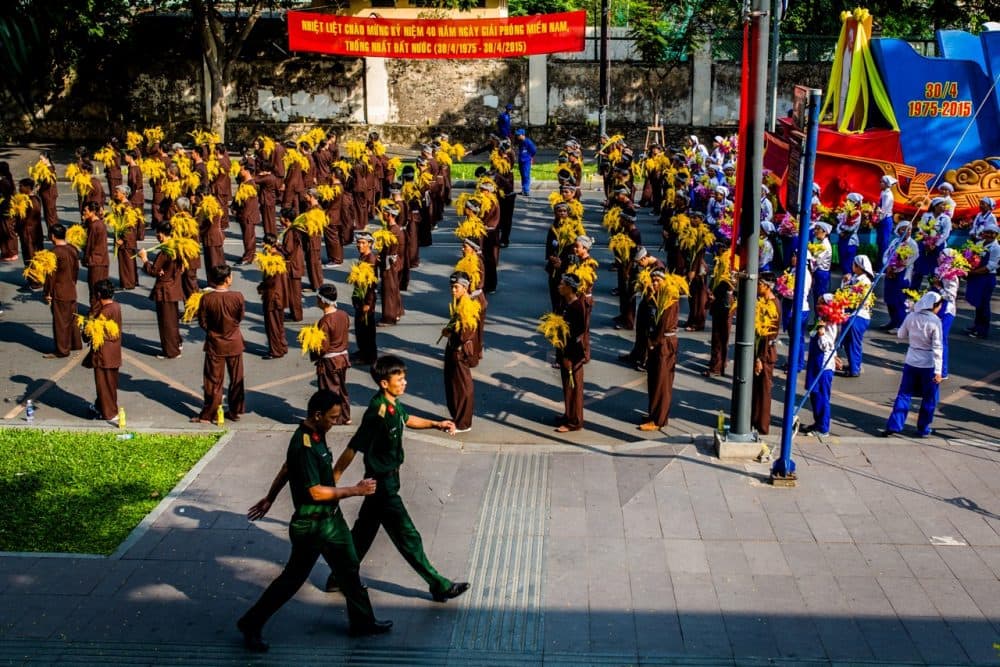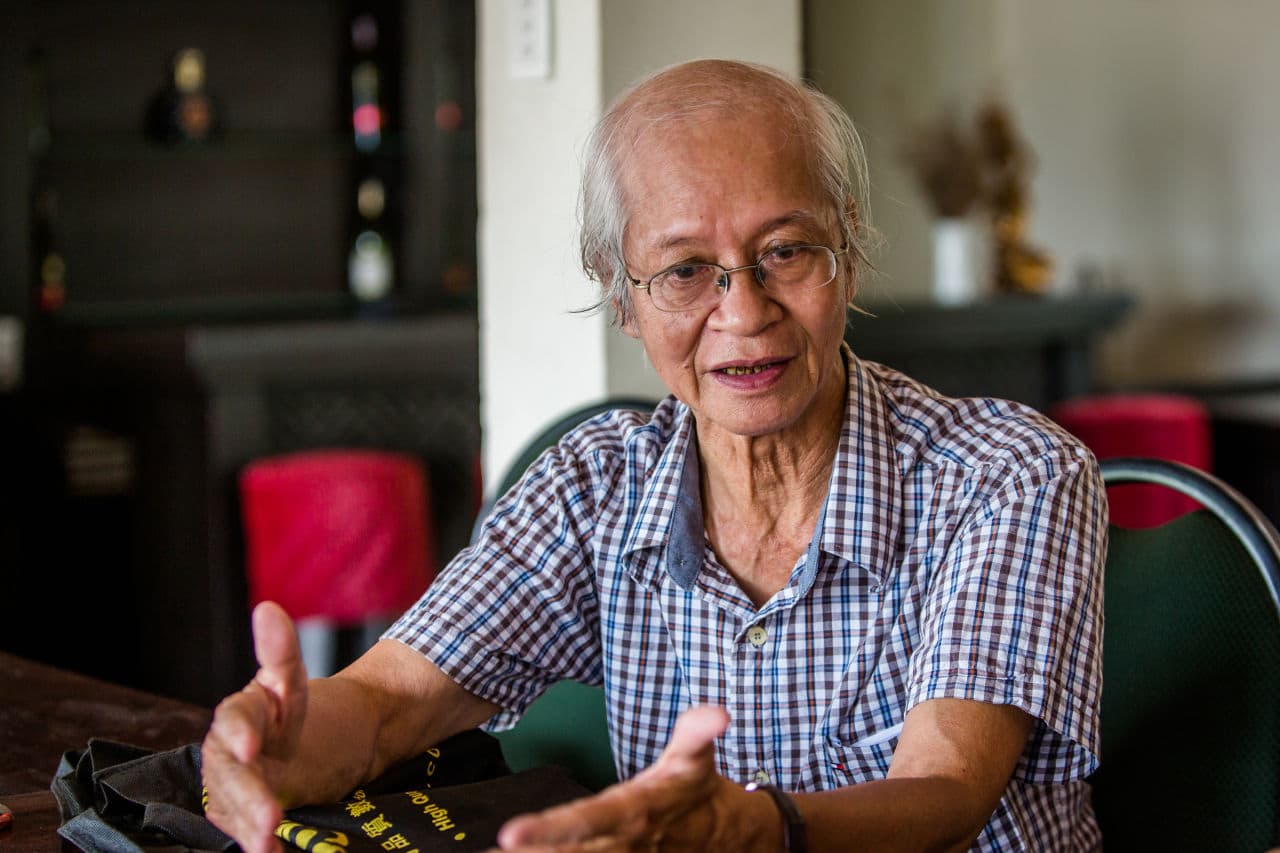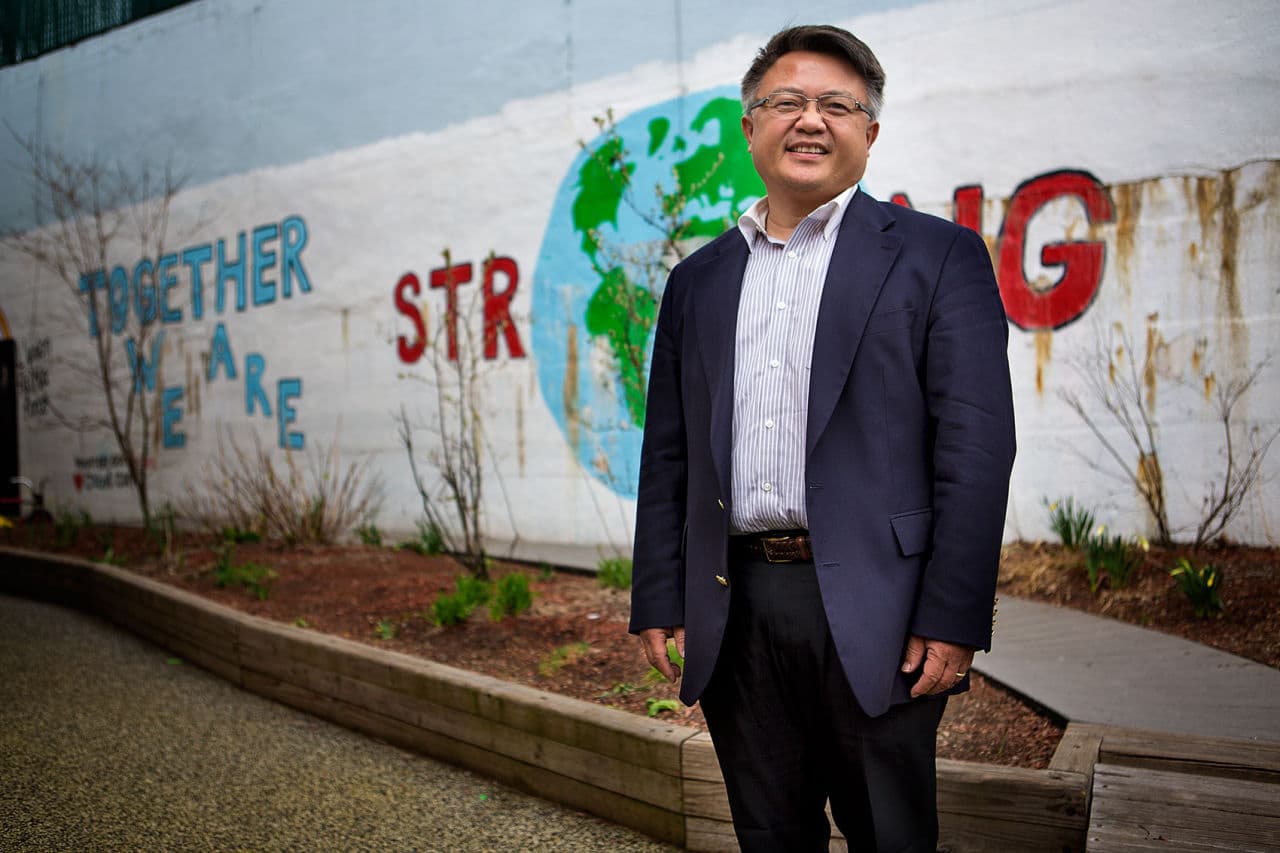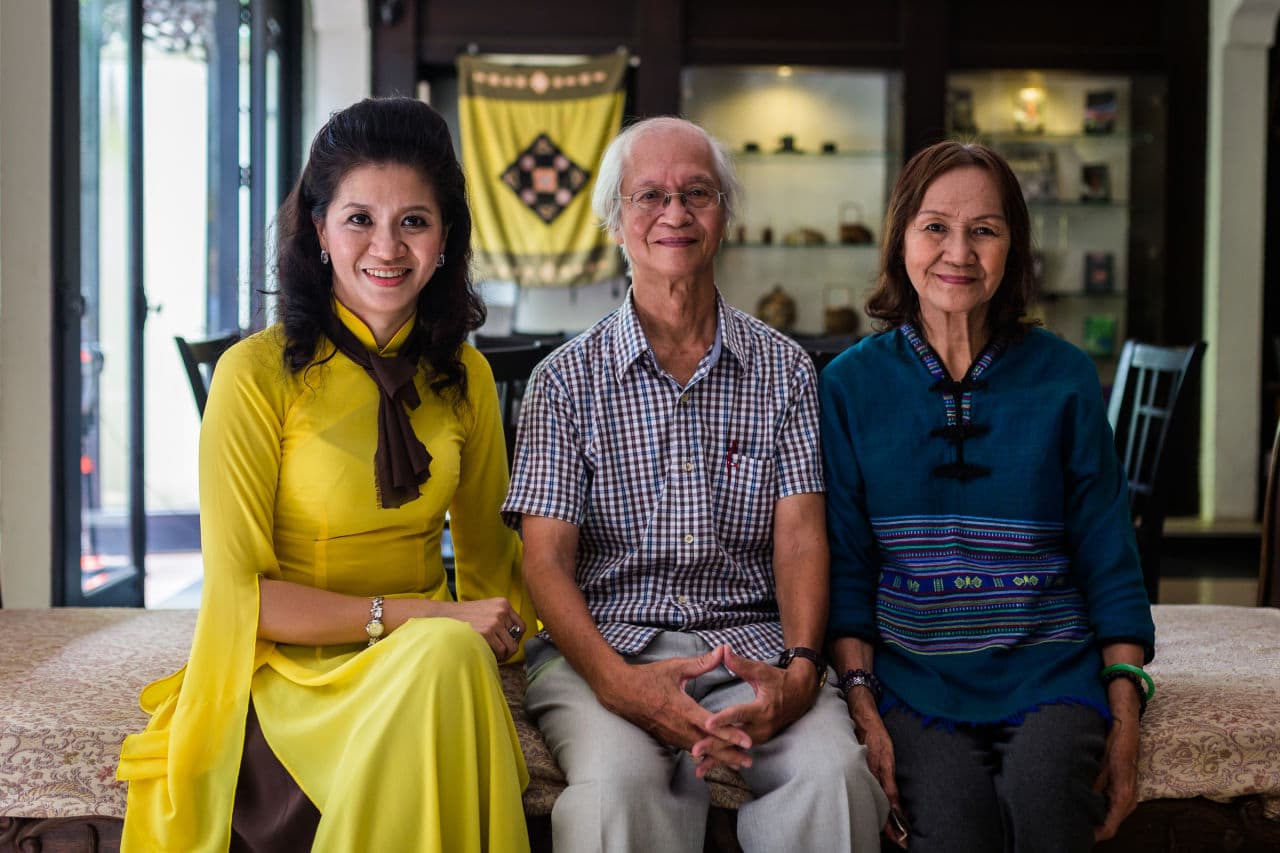Advertisement
For Vietnamese, April 30 Is A Day Of Many Meanings
Resume
All week, we’ve been watching preparations for this day — the celebration of the 40th anniversary of Vietnam’s Reunification Day.
Here in Ho Chi Minh City Thursday, dozens of military marching units stepped off down the street in unison. Civilians dressed in colorful costumes followed — all to tight security and sparse crowds.
Reunification Day marks the day the last American troops left Vietnam, and the North and the South were joined again. But what does April 30 mean to the Vietnamese? Well, it very much depends on whom you ask.
Take 75-year-old Nguyen Huu Thai. We met the longtime architect and urban planner this week in his family-owned boutique hotel here.

"You know my impression of the first night of April 30th? It was a wonder for me," he said. "I looked at the sky — no more military planes, not even Vietnamese planes. On the street, no more military cars. No more flares in the sky. It was so peaceful and dark. I couldn’t believe it myself, because in all my youth there was no time of peace. And we longed for peace.”
His story is complicated. As a young man he was an officer in the South Vietnamese Army, but he was also an anti-war activist who was jailed four times. And he was a spy for the Viet Cong.
“Working in the day as a South Vietnamese officer, I was an instructor in political science,” he said. “All my other time I devoted to being something like a spy. That was my mission as an urban National Liberation Front fighter. I provided information, even weapons.”
While Nguyen Huu Thai celebrated on April 30, at the very same time, Van Truong Le and his family were fleeing the country.

“There were a lot of gunfire, rockets and explosions. There were dead bodies on the streets. There were abandoned buildings and homes," he said in a recent interview. "As we were driving through the city, all nine of us packed into my father’s station wagon, we were seeing it. It was almost like a movie to me. It was kind of unreal as a child seeing all of this."
Van Truong Le was just 8 years old. His family was trying to escape because his father, a wealthy sugar and lumber merchant, supported the South Vietnamese government and did business with the Americans.
Eventually, the family, led by the father, made it to the coast.
“He was able to rent a tugboat and we probably had maybe 100 people load up on this small tugboat, which is bizarre," Van Truong Le recalled. "But it became very quickly overloaded with passengers, with deserted soldiers throwing away their guns, with folks who wanted to join with us and flee the country to just the open ocean.”
After eight or nine days at sea — sometimes adrift, sometimes siphoning fuel off abandoned boats — they were picked up by a ship and taken to the Philippines. They spent time in a refugee camp, and later resettled in Pennsylvania.
For the Truong family, those early years in the U.S. were difficult. Wealthy in Vietnam, but suddenly poor in America, Truong’s father took a job as a museum janitor in Pittsburgh while looking for other work. The family then moved to Queens, New York, then New Orleans, Baton Rouge and Houston. Over the years, members of the family settled in different cities.
And at 11 years old in 1978, Van Truong Le arrived in Boston to live with his older brother and sister, and went back to school.
“We were told Massachusetts had the best schools in the country, so we went in that direction and during those times it was a welcoming state for refugees, for Vietnamese people, and we had some friends who were already in Boston," he said.
Van Truong Le was recruited to a private high school. Harvard University followed, as did Northeastern University School of Law. Today he’s a lawyer in Boston and the interim director of VietAid, an organization serving the Vietnamese community in Greater Boston.
Six of his brothers and sisters still live in Boston. Two other siblings are in California, and one is in Washington, D.C. He describes them all as successful and lucky.

Back here in Vietnam, Nguyen Huu Thai’s family is also full of success stories. They’ve made a good life here. But he understands why so many fled the war-torn country.
“Certainly you have a segment of Vietnamese people who were very anti-communist," he said. "They were afraid of communist. At that time, black propaganda from the American and South Vietnamese governments said, ‘If communists come, you will have slaughter. At least 1 million will die if communists enter Saigon.’ Many people believed that.”
Nguyen Huu Thai calls the communist takeover a peaceful transition. While it’s not known how many people died in the fall of Saigon, thousands of South Vietnamese were placed in reeducation camps.
April 30 remains an important and emotional day for many Vietnamese here and abroad. For Van Truong Le in Boston, this is a painful day, a time he and others who fled Vietnam call “Black April.”
“Because that was when folks from South Vietnam lost our country to the North Communist regime," he said. "It was the day we lost our country. So we refer to it as Black April 1975. In fact for the last 40 years on April 30, the Vietnamese who have resettled here for the most part commemorate and observe that day as a day to commemorate the loss of Vietnam."
But here's what Nguyen Huu Thai, in Ho Chi Minh City, said to that: “It is the propaganda by anti-communist people abroad — Black April.”
He added: “I know they even say the day, April 30th, is a day of hate. I could call the day, April 30th, a day of peace, independence and reunification of Vietnam.”
They’ve never met, Nguyen Huu Thai and Van Truong Le. But even beyond their common bond to Vietnam, they have something more in common: no regrets for the difficulties and hardships in their lives.
“I think if I were born again, regained my youth ... I’d do it the same," Nguyen Huu Thai said. "I’d do the same thing.”
And in Boston, Van Truong Le agrees.
“I wouldn’t change a single thing," he said. "I think God’s plan for you is much more complicated than you can understand. Would I have rather been back in Vietnam where my father was a multimillionaire and I had everything given to me? Maybe. But through the difficult moments, I learned more. Through not having things given to me, I worked harder.”
This article was originally published on April 30, 2015.
This segment aired on April 30, 2015.

